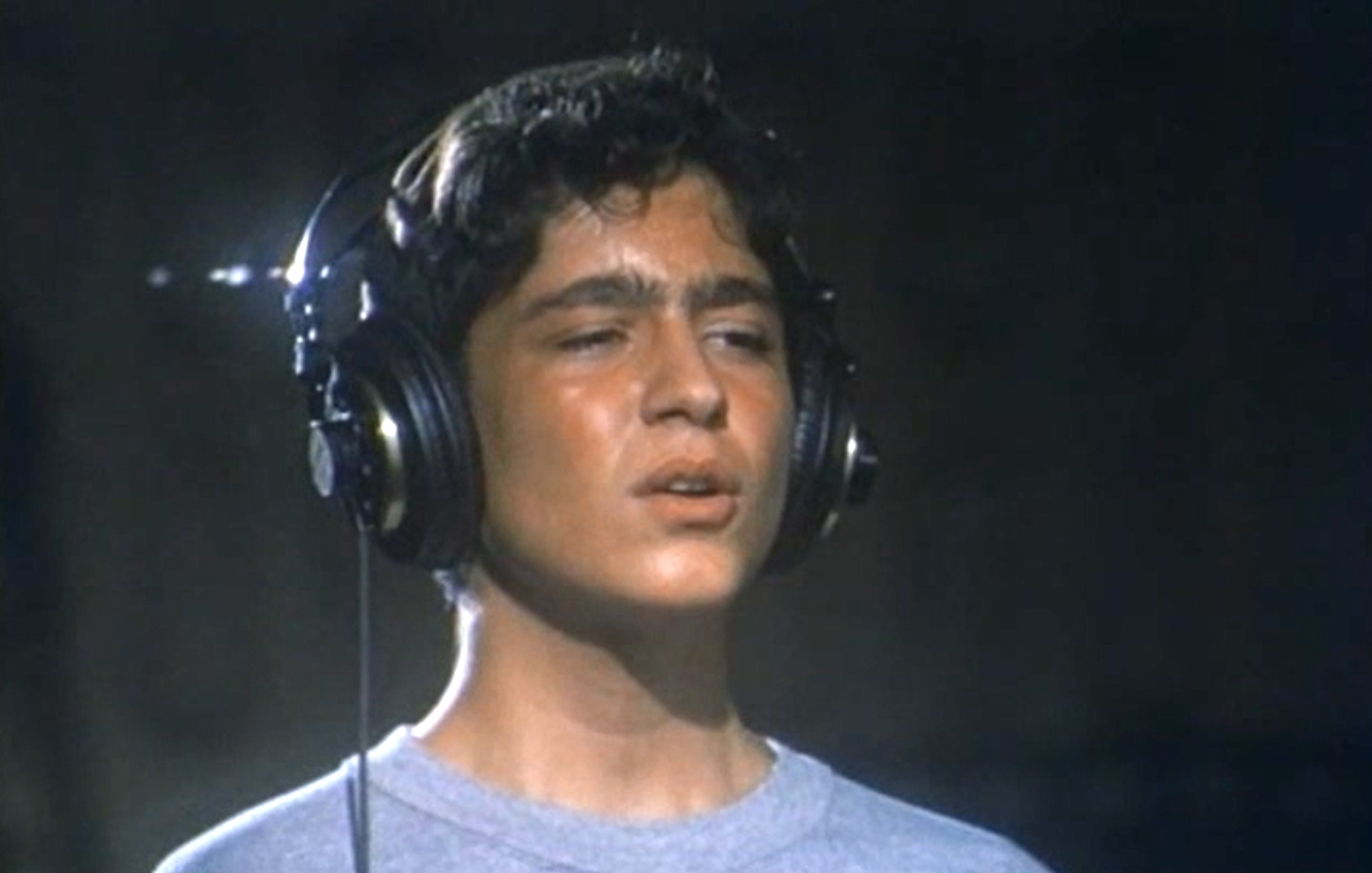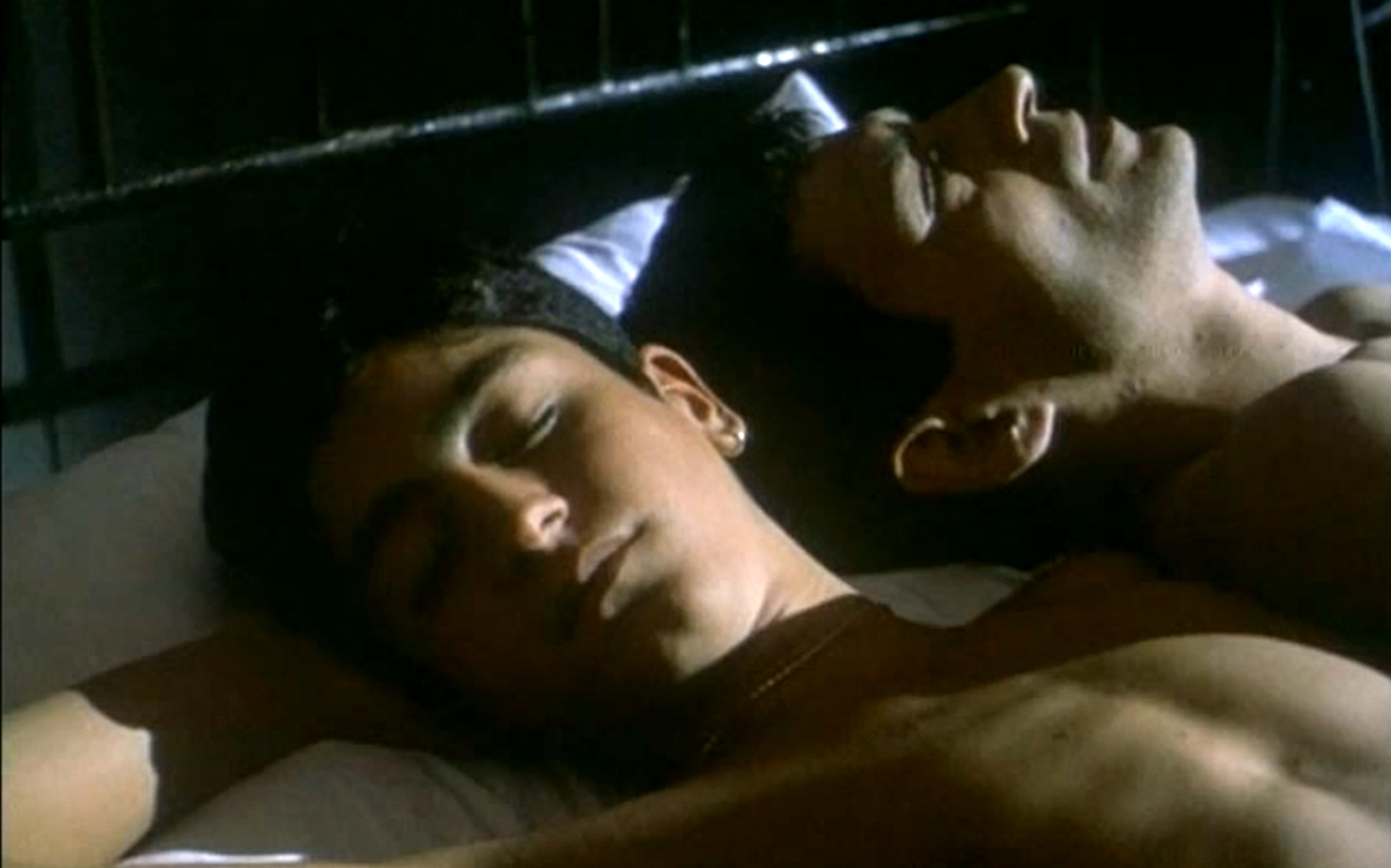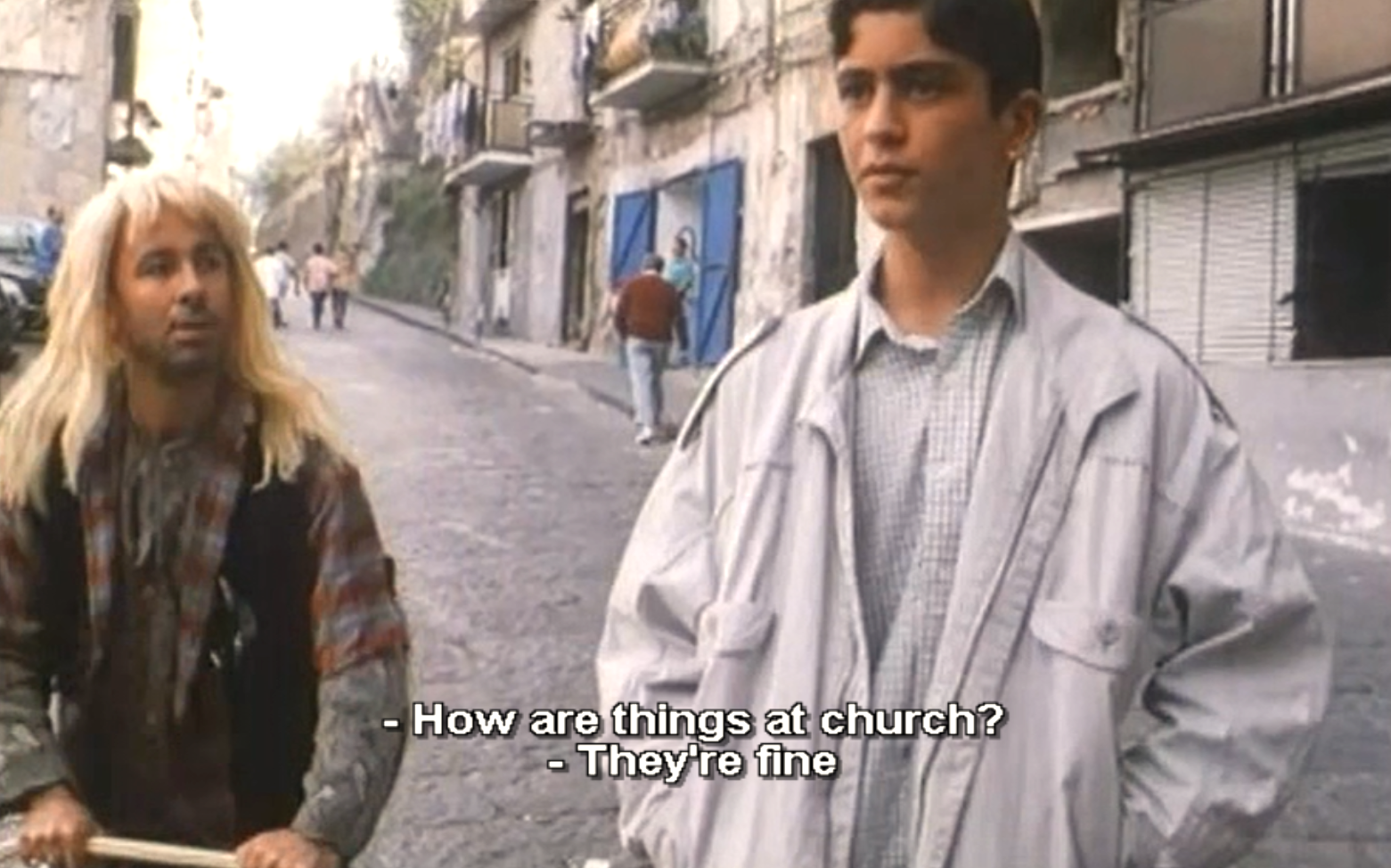dirty heroes: body and soul
by Douglas Messerli
Antonio Capuano
(screenwriter and director) Pianese Nunio, 14 anni a Maggio (Sacred
Silence) / 1996
The local Naples priest, Don Lorenzo Borrelli (Fabrizio Bentivoglio), titled the blue jeans priest, is akin to the heroes of many a movie, including those represented in Matteo Garrone’s Gommorah and in the character of Father Pete Barry in Elia Kazan’s On the Waterfront (1954). Both characters Barry and Borrelli along with director Garrone are fighting war, so to speak, against the local mafia or in the Naples more particularly the Camorra, who controls Naples and is prevalent in Borrelli’s poor neighborhood. And Borrelli knows that he cannot save the young children he attempts to nurture as long as the parents accept the mafia and engage with them as a daily part of their lives.
Yet Borrelli has a serious flaw: he has
uncovered a beautiful young 13-year-old, a talented singer who also plays the
organ for his church, and himself wishes to become a priest, with whom he has
he now spends his meals, his intellectual tutelage and, rather shockingly, his
“personal affection.” In short, this hero-priest is also pedophile, trapped
between his ideals and his body.
The local mobsters, tired of the harangues
against them and, for all their seeming strength, necessarily seeing the
revealment of the priest’s secret life as their way to shut him up, begin their
pressure on the young acolyte.
In a perhaps overlong series of events and
a great many verbal attacks against his social enemy, the Camorra, the movie
makes it way surely to where we all know it must end.
Director Capuano does not forgive his
tragic hero for his awful sins of the flesh, but does reveal him in the final
scenes as a kind of Christ, who refuses even a funereal in the church for one
of the Camorra leaders who has just been killed.
By film’s end, disgusted as we may be by
his sexual behavior, the viewers themselves must ponder the same question.
By the time of his last visit to Borrelli,
the priest even permits the young boy to betray him to the police with the
words, “If you report me, I’ll say nothing against you.”
The boy does so, almost unwillingly, yet
tired, as he puts it, of being a “sheep.” And the result is the silencing of one
of the few social forces attempting to stand up to the Camorra.
We recognize that even Nunio’s life will
end disastrously, as in one professional gig he ends up with another boy
singing in the subways.
This movie could not probably me made or
taken seriously today when instead of pondering such issues we simply dismiss
them as immoral, but in 1996, Matt Blake writing in The
Wild Eye, described it as “an amazingly courageous film,
considering the fact that it’s essentially about a paedophile and, what’s more,
a paedophile who is in many other ways so upstanding and heroic. Lorenzo
certainly makes for a difficult protagonist, at the same part admirable and
despicable; and the fact is that he takes advantage of a vulnerable young man
in much the same way as the Camorra he so despises. But he’s a genuinely tragic
protagonist, someone who tries to do good but fails because of fatal character
flaw which not only undermines his cause but also his whole moral bearing.”
This is the kind of film that one carries
with one for months after seeing it, a work gnawing at the heart and mind.
There is no easy answer for dirty heroes.
Los
Angeles, June 3, 2025
Reprinted from My Queer Cinema blog
(June 2025).






